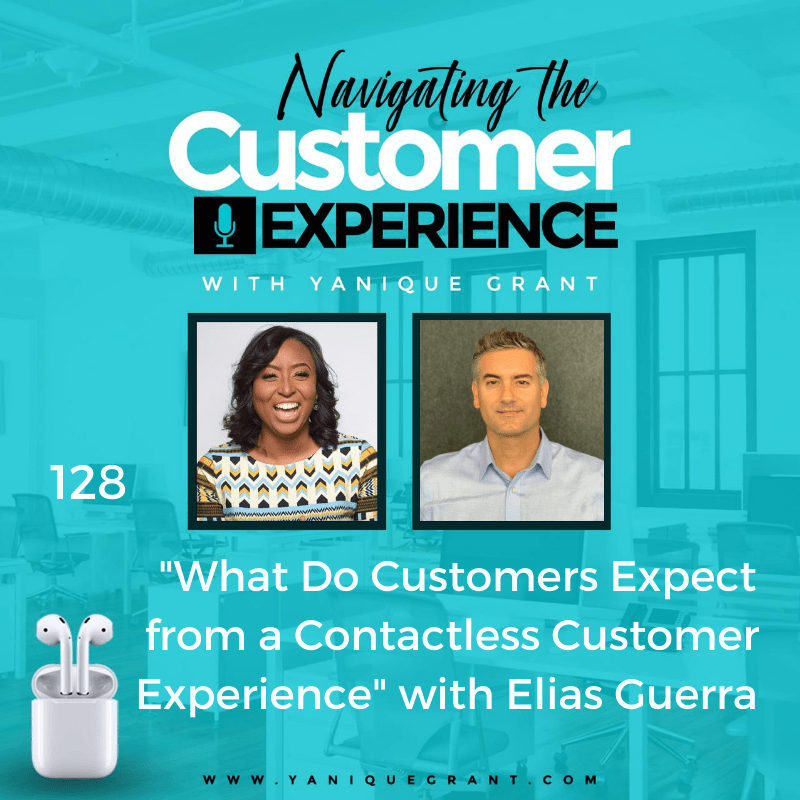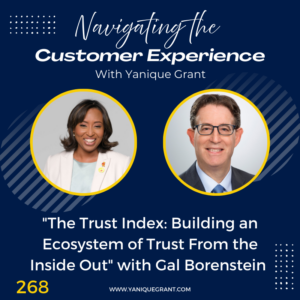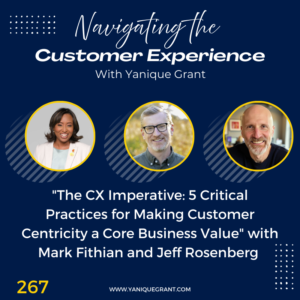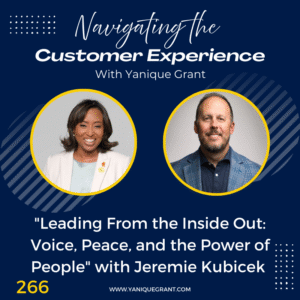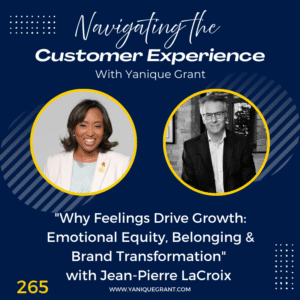Elias Guerra is the Founder and CEO of Popwallet, a Mobile Wallet Customer Experience platform working with some of the most innovative brands in the world to deliver contactless customer experiences to people through mobile wallets like Apple Wallet and Google Pay. These experiences include dynamic coupons and offers, rebates, loyalty and gift cards, tickets and other lightweight branded content. Prior to founding Popwallet, he spent his career doing product and market development for Yahoo (twice), Flurry, IBM, and Thomson Reuters. Elias has an MBA from USC and a BA from Pepperdine University.
Questions
- How would you describe your journey? How is it that you’ve got to where you are today? And what has that been like for you?
- What if you’re trying to integrate this into a culture or a country, or a market where it is that the persons there are very sceptical? Because they don’t understand how the technology works, they’re not necessarily quick to jump on board. How do you get those customers to feel as comfortable using those methods of payment as they would if they were using their credit card or even cash? How do you get into that state?
- Maybe could you share with us one or two things that you think trends that maybe will continue or new emerging things that you think will come about in the next maybe two to three years, based on where we’re at?
- Could you share with us how do you stay motivated every day?
- Could you also share with us maybe what’s the one online resource, tool, website or app that you absolutely cannot live without in your business?
- Could you share with us maybe one or two books that have had the biggest impact on you – it could be a book that you read recently, or even a book that you read a very long time ago, but it still has had a great impact on you.
- Could you share with us what’s the one thing that’s going on in your life right now that you’re really excited about – it could be something that you’re working on to develop yourself or your people.
- Do you have to be a mobile brand in order to have a contactless customer experience?
- Where can listeners find you online if they wanted to connect with you further?
- Do you have a quote or a saying that during times of adversity or challenge, you will tend to revert to this quote; it kind of helps to get you back on track or get you refocus. Do you have one of those?
Highlights
Elias’ Journey
Elias shared that he started the Popwallet about 5 years ago along with a co-founder, CTO, Wes Biggs. Popwallet is a mobile wallet, marketing automation and customer experience management platform, that’s really just a long way of saying that they provide software tools for companies to engage their consumers through mobile wallets like Apple Wallet and Google Pay. But Popwallet is a technology company and ironically, his own journey did not start in technology, he kind of fell into it at a young age.
When he went to university, Pepperdine, he studied history and languages and liberal arts. And as a child, he really wanted to be a lawyer. He thought that that’s what he wanted to be. And his first job out of undergraduate school, his whole plan was to work in a law firm, study for the L SATs and then start law school the following year. And after working in that environment, just realized and seen firsthand what that work really was like, realizing “I don’t think this is for me.”
And so, as a 22 year old was confronted with this watershed moment and somebody at the firm actually connected him to a consulting firm, the firm that did litigation consulting. And so, he started with consulting shortly thereafter, but in the technology space and learning technology as he went along. And not having studied that in school, but being familiar with how some of these things work, he was able to take classes at night, things like data communications, and programming and database management, and ultimately learn how technology works and did that for a few years, went to business school, came out of business school, really on the other side.
So from that point, less about building technology, more about selling technology, and doing partnerships and sales and business development for companies like IBM, and then Yahoo. And ultimately, about a decade ago, started getting into the mobile space and being really fascinated by mobile advertising technology and mobile marketing technology and he was fortunate to work for a company that Yahoo acquired a mobile app analytics company that was called Flurry and he worked for Yahoo before Flurry, and then left Yahoo to join Flurry, worked there for 2 years. And then Yahoo acquired them and so went back to Yahoo as part of this acquisition. But it was really that experience with this mobile app analytics company and seeing a lot of data around consumer behaviour in this new paradigm that was mobile. Think about the past decade is more and more people using smartphones, and apps proliferated, and smartphones proliferated and seeing what people were doing on their phones, and just recognizing an opportunity and market to make those user experiences better and to make it better for the brands they’re trying to reach those users. And that’s when they saw the middle part of the last decade mobile wallets really around 2015 become more prominent in that arena, and they just saw business opportunity there. So, that’s a little bit about his own journey, how he got to starting Popwallet about 5 years ago.
Integrating of Contactless Customer Experience
Me: So, your company focuses a lot on integration of contactless customer experiences with these mobile pay platforms. If you’re in a culture, because like, in Jamaica, people are still very skeptical. I travelled to the US quite often and my sister lives in Canada. And I see people use the Apple Pay and Google Pay and it’s very easy, they’ve clearly adapted to the technology really well, and they trust it. But what if you’re trying to integrate this into a culture or a country, or a market where it is that the persons there are very skeptical? Because they don’t understand how the technology works, they’re not necessarily quick to jump on board. How do you get those customers to feel as comfortable using those methods of payment as they would if they were using their credit card or even cash? How do you get into that state?
Elias shared that it can be difficult to break through initially and there often are concerns. It’s ironic, because there are often concerns around security using a mobile wallet to pay for something, or to transact and not really knowing where your data is going.
The irony is that it’s actually far more secure, the way that the data is encrypted and transmitted, is far more secure than say, certainly carrying paper cash or even a credit card. The plastic credit cards, certainly with the magstripes before now those have largely have been replaced by chips is more secure.
But an easy way to think about the difference in security is, let’s say I hand you my credit card, and you hand me your phone, who is more likely to be able to go out and run up some purchases, some fraudulent purchases, the person with the credit card or the cash, this paper or plastic, they can use that, they can spend that at least until that credit card is cancelled.
With your phone, there’s this layer of security where you have to be able to authenticate, you have to be able to get into the phone into the first place and then you often have to authenticate again to do your transaction. And when that transaction occurs, it is done in a safe and encrypted manner, but that’s a lot for an individual to really think about, “Whoa, is this that much safer.” But once we really start using it, where we find the key is, it’s just that convenience, it’s just easier. And rather than carrying around your paper or plastic, these physical objects, more and more people globally, they just have their smartphones with them at all times.
And so if you’re in the store, and you need to buy something, or you’re going somewhere and you need to access something, it’s likely that your phone is with you, on your person within arm’s reach and you can easily use it to make that transaction.
And that’s where they see on a really large scale that shift in consumer behaviour where that smartphone, it used to be that it’s very much about these heads down immersive experiences where you’re scrolling your social feed, and you’re reading your news and that still happens by and large, these content consumption experiences, but increasingly, that phone, that smartphone is becoming the way that people interact with the world around them and it becomes that interface.To think about if you’re buying your groceries in a store or you mentioned travelling if you’re getting on a flight, not that we’re doing a lot of flying these days.
But back when we used to get on airplanes more often, you’re saving your boarding pass to your mobile wallet and you’re going to a theatre, a movie theatre and saving your ticket, these types of experiences, they’re just easier to do as people use that smartphone to interact with the world around them. So in these new markets, they find this usually convenience and once people start using it and doing it, it really takes off from there.
To add one more note on that that is actually shifted a bit more recently where safety has become paramount in the minds of consumers, obviously, with the pandemic, this idea of being in a store and touching things, and handing a card to somebody or handing paper to somebody, that consumer consciousness around remaining safe during their shopping experiences is another driver of these contactless transactions, your mobile wallets.
Safety and Customer Experience During the Pandemic
Me: So based on your experience and the fact that you guys are clearly pioneers in this space, and you’re doing really, really well. Maybe could you share with us one or two things that you think trends that maybe will continue or new emerging things that you think will come about in the next maybe two to three years, based on where we’re at? Because I know definitely since the pandemic globally, safety, where as safety, it may not have been as important to a business when it relates to customer experience; it is now something that you have to integrate into your customer experience strategy.
How are we going to let our customers feel safe in this environment?
And some companies definitely, I think integrated it before COVID. But it’s become even more prevalent now as you mentioned before, I would definitely prefer to take out my phone and do a tap then have to go into my wallet and hand you my card and you touch it, I don’t know where your hands were or any form of money transaction. So do you see any emerging trends coming about?
Elias shared that precisely what they’re talking about, it’s critical. If you want to deliver that outstanding customer experience, what does your customer want, the person coming into your store or attending your event, they want to engage with you as a brand or as a store, the shopper in a way that feels good to them, in a way that in this scenario is safe and this idea of touching things.
So, this trend towards contactless and enabling people to go about their daily lives out in the real world without having to touch anything more than they have to, is this unnecessary contact is this idea of if I’m standing at a checkout line, do I really have to pull out my plastic loyalty card and hand it to the checkout person and have them scan and then hand cash or can I do this from about 10 centimetres away by holding my phone near the payment terminal and transacting that way.
And that’s a more delightful experience for the customer and that’s something that can be enabled and delivered. And that’s something that they’re seeing increasingly, the customers want.
And now we talked about shopping but really anything, the trend that we see really developing and continuing into the future is that what he mentioned earlier, this idea of his smartphone as an interface to the world around him, so whatever he’s trying to access.
They’ve seen implementations around cars, automobiles, there are certain car manufacturers where you can start your car using your mobile wallet. Student IDs, and if you’re accessing your dorm room using your mobile wallet to unlock that door or access your meal plan. Of course, things like tickets for transportation here in New York City, all of the subway stations now you can just tap your phone, tap your mobile wallet, and easily access and get on the train. So, really anything that you need to access that requires some type of authentication as an individual, they see more and more of those use cases developing over the couple of years and even related to the pandemic, this idea of getting vaccinated and having your vaccine passport right now and even his.
Today, he has a paper vaccination card. But now we see different government authorities enabling that to be mobilized and in some instances saved into a mobile wallet. So if you want to go somewhere and prove that you’ve been vaccinated, we’re talking about how the world has changed so rapidly, you’ll be able to use your mobile wallet for that. So we definitely see that trend continuing in the coming years.
How Elias Stay Motivated
When asked how he stays motivated, Elias shared that there’s a feedback loop. He does what he can to motivate his team, the people that he works with, they do the same for him. It’s really energizing when they see products that are built capabilities that are added that they can then deliver to a customer and their own customers, the companies that they work with.
They’re a B2B to C platform, so they’ll work with brands like Nestle and Mars or DSW and David’s Bridal, different brands and retailers. But they’ll provide them technology that they can then go use to engage their customers in this safe and contactless way through mobile wallets. And so he gets motivated when he sees something that they’ve enabled out in the wild, where he can save a Nestle, DiGiorno offering to his mobile wallet and go use it in a store, he thinks that’s fantastic. Or if he receives a Mars Snickers gift card and that he can save into his mobile wallet and go see it.
And so, that gets their team excited and then their excitement excites him. And so, it’s this feedback loop and reinforcement. And so, he thinks it’s a matter of moving forward every day, and benefiting frankly from some tailwinds in the market that really helped and they had to anticipate this several years ago. It wasn’t as obvious when they started as it’s become obvious now this need for these mobile wallet types of interactions. But it’s all very motivating and when they see it come together out in market.
App, Website or Tool that Elias Absolutely Can’t Live Without in Him Business
When asked about an online resource that he cannot live without in your business, Elias shared that that’s a tough question, because he a voracious consumer of content, he access quite a bit. He will say that interestingly, something that he looks at a lot is, for him and maybe it’s not as obvious. But something like the New York Times where it’s more about, what are people doing?
How are humans behaving?
What’s happening in different markets, different global markets?
How is behaviour changing?
And what are those stories that are representing this human behavioural change?
So trying to understand really what’s happening in the world? And then, of course, that’s the 30,000 foot view.
How do we then apply it to ground level that says, well, based on these behaviours, based on these trends or these things that are happening, here’s what we can build, and then sell and then service and market to help capitalize on what’s happening in the world around us. So he does try and of course, he reads industry trade and technology, journals, things of that nature, pretty constantly, but just trying to remove yourself from that to a degree and just understand what’s happening in the world around he think really helps their business quite a bit.
Books That Have Had the Greatest Impact on Elias
When asked about books that have had the biggest impact, Elias shared that he does enjoy reading; he thinks it’s something he’s trying to work in his own life is reading more fiction, he tend to read a lot of nonfiction. But a book he just finished a couple of weeks ago is called 21 Lessons for the 21st Century is written by this author Yuval Harari, he wrote a while back, he wrote Sapiens, which is human history, but condensed within 300 pages, which is quite a monumental task. And then he wrote the follow up to that is Homo Deus, which is thinking about how does mankind, humankind evolve in the years to come with the technologies like AI and robotics and what does the future look like.
In 21 Lessons for the 21st century, he thought it was appropriate, because as we entered 2021 thinking about these different topics, and it looks at big topics and each chapter is broken out by a topic that he’ll cover in great detail. So just again, to his earlier point, he’s reading the New York Times it just gives us other perspective on what’s happening in the world, these things around globalization and politics and nationalism and liberalism and how all these things interplay.
And so, he’ll read a book like that and he’ll think about, “Okay, how does this apply to our mobile wallet, marketing automation and customer experience management platform.” So, trying to tie those things back to their business as he can, but that was a great book that he recently read, 21 Lessons for the 21st Century.
What Elias is Really Excited About Now!
Elias shared that Popwallet, having started 5 years ago, they’re seeing good growth and momentum but they’re still a startup. And so, they’re still in that growth stage and seeing these shifting trends and their ability to build and deliver on it, he thinks that gets him excited every day. So, that’s probably what consumes the bulk of his time is just thinking and it’s really taking that step that they took and going from zero to one, creating something out of nothing that is of value and then thinking, “Well, how do we go to those next levels that from 1 to 10?” And that’s really what they’re focused on now, is how do they scale that? He will say, Yanique asked for one thing but he’s going to say 2 things.
So, also just being a father, he has a 9-year-old daughter, her name is Gwen, she’s absolutely wonderful, she is the apple of his eye. And so, when he’s not focused on Popwallet, she’s his primary focus and what kinds of things can they do. And it’s exciting here in New York City, as people are getting vaccinated, the weather’s getting nicer, there’s this sense of vibrancy and life things coming back and so experiencing a lot of that, not only himself but through her eyes as they try and reintegrate into the world as things open up more since they’ve been close. It’s been a difficult year for so many this past year, but there’s optimistic signs going forward and he’s very encouraged by that.
Mobile Brand and Contactless Customer Experience
Me: So, we spoke a lot about Popwallet, we spoke about why it’s important to have this contactless customer experience. One of the things that popped into my mind while you were speaking is, like with the Mobile Wallets, they have the power to drive, not just commerce, but also loyalty and affinity for all kinds of brands. So what I wanted to know was how is it that as a mobile brand or do you have to be a mobile brand in order to have a contactless customer experience?
Elias stated that not necessarily, that tends to be their sweet spot where they work the most. And so, it’s a brand that can be a brand for a product like consumer packaged goods, like, again, think of Snickers or DiGiorno Pizza, or it can be a store, they work a lot with actual retailers.
The best use case for mobile wallet usage, is when you’re a product that’s sold in physical stores, or if your store yourself, it’s less effective when it comes to eCommerce. And of course, eCommerce more and more people buying things online.
Vast majority of purchases are still made in store and stores aren’t going away, that environment is shifting and changing, but they’re not going away. And so they’ve worked with brands primarily to engage shoppers in this safe and contactless way and the idea and how it drives affinity and loyalty is, can I just make it easy and convenient and safe for the shopper?
Can I delight them when they come into my store?
Or when they buy my product, can I reward them?
Can I understand what they’re interested in and relate to them in a way that’s personal, and that that shopper responds to?
And so, they are enabling technology, they’re not a panacea that solves world hunger and all these problems. But for a brand that wants to engage consumers in a meaningful way on their mobile devices, they can provide them pretty interesting and robust tools to do that. And if you make a shopper happy, if you go into a store, and you have a good experience, you’re more likely to come back. If you buy a product, and that was a delightful experience and maybe you get rewarded for your loyalty. And they can make it easy to deliver those rewards all through the mobile wallet, then you’re more likely to remain loyal to that brand. And so it’s really about enabling those behaviours.
Now, of course, mobile wallets, the purview is much larger than that. Again, it’s this idea of using the phone to interact with the world around so there’s a lot more that can be done with it. But working with brands and retailers, that’s primarily where they’ve been focused thus far.
Me: So that definitely puts into perspective, who it is that it’s this technology is best suited for. And then, depending on where the listener is at in their business line, they can identify if this would be something that they would definitely benefit from and how it is that it will definitely integrate to help, as you said, have their customers have a more delightful experience. Because I mean, we all want to have experiences that when we think about it, we say, “Hmm, I’ll do it again.” And I mean, when you think about your customer experiences, how many of those would you really want to repeat over and over again?
Elias stated that customers; and they really appreciate being rewarded for their loyalty and that’s something that can be made easy through the mobile wallet. And so an example, when they think about the use cases that are supported, that their clients deliver through mobile wallets is for things that people want, it is things like coupons. Who doesn’t like to save a couple bucks when they’re making a purchase or loyalty? If he’s buying the same brand, or shopping at the same store, you’re a customer, hey, show me some love.
Give him a little kickback, or give him some points or some other reward. And so they can make it easy for the customer to earn these rewards, to redeem their offers, but do so in the same way that gives the brand or that store visibility into that customer and the ability to directly interact with them through that mobile wallet, through that coupon that they save into the mobile wallet, or that gift card that they use, or that ticket to the event. Then that, their role as a technology provider makes it better for the customers, it makes it better for the brands. And if they can just bridge those two things, and he thinks they’re on to something.
Where Can We Find Elias Online
Website – www.popwallet.com
LinkedIn – Elias Guerra
Quote or Saying that During Times of Adversity Elias Uses
When asked if he has a quote or saying that he tends to revert to, Elias stated that absolutely and it’s funny because this came up last year reading a book with his daughter. The book is called WOLFPACK: How to Come Together, Unleash Our Power, and Change the Game and is written by Abby Wambachwho’s a great US women’s soccer player. And it’s a very inspiring book. And it’s wonderful reading with his then 8 year old daughter, but there’s a quote in this book and the quote is, “A girl who never gives up can never fail.”
And he was reading this with his daughter and it just resonated. A girl who never gives up can never fail. And it’s something that he tries and teaches her as she grows and empowering her to know that if she doesn’t quit, that she can succeed, that she can achieve her objectives. But also, he applies that to their own business. They’re still a startup as he mentioned, they’re still small, they’re growing, and they’re doing some good things and as long as they don’t give up, as long as they keep moving forward, they’re going to be successful, they’re not going to fail. And so, when he read that last year really resonated and it is something that he does repeat to himself and those around him often.
Me: And that came from my children’s book.
Elias shared that it’s actually not a children’s book, he read it to a child. It’s child friendly. It was written by Abby Wambach who’s one of the great US American women’s soccer players in history. It’s just a very inspiring book and it’s a lot about female empowerment and just wonderful lessons for his young daughter, so he read it with her.
Me: Amazing. That’s a good message for her to learn. It’s good for her to learn it at a very early age as well.
Please connect with us on Twitter @navigatingcx and also join our Private Facebook Community – Navigating the Customer Experience and listen to our FB Lives weekly with a new guest
Grab the Freebie on Our Website – TOP 10 Online Business Resources for Small Business Owners
Links
The ABC’s of a Fantastic Customer Experience
Do you want to pivot your online customer experience and build loyalty – get a copy of “The ABC’s of a Fantastic Customer Experience.”
The ABC’s of a Fantastic Customer Experience provides 26 easy to follow steps and techniques that helps your business to achieve success and build brand loyalty.
This Guide to Limitless, Happy and Loyal Customers will help you to strengthen your service delivery, enhance your knowledge and appreciation of the customer experience and provide tips and practical strategies that you can start implementing immediately!
This book will develop your customer service skills and sharpen your attention to detail when serving others.
Master your customer experience and develop those knock your socks off techniques that will lead to lifetime customers. Your customers will only want to work with your business and it will be your brand differentiator. It will lead to recruiters to seek you out by providing practical examples on how to deliver a winning customer service experience!

